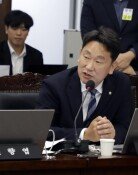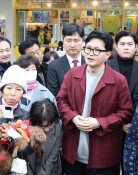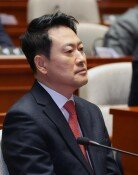Korea not livable, survey says
Korea not livable, survey says
Posted October. 09, 2000 12:20,
Does Korean society provide the kind of environment in which Koreans desire to live? Does the government truly represent the people and work for the livelihood of the people? Does the government adopt appropriate policies for public welfare and a better standard of living?
To all of the questions above concerning life in Korea, the people of Korea have answered in the negative.
This daily vernacular, Dong-A Ilbo, kicked off a regular study of the opinions of the people concerning life in Korea with the first Dong-A Ilbo Survey for Korean Satisfaction Index from Oct. 4 to 5. The result showed that three out of four -- 73.7% -- answered, "Korea is not a good place to live."
Concerning the National Assembly, 46.3% were greatly dissatisfied and of the opinion that they "were doing a bad job." If added to the 49.6% of "generally doing a bad job", 95.9% were of the opinion that the National Assembly has gone amiss.
Concerning the government's economic policy development and management, eight out of 10, 81.6% were of the negative opinion of "doing a bad job."
More than half, 58.9%, felt that the gap between the haves and the have-nots was increasing rapidly, while 34.5% felt the gap was growing slightly. The total being 93.4%, the government seems poised to confront the issue head-on.
If an opportunity availed itself, four out of 10, 43.0% ("very much so" 14.6%, "somewhat" 28.4%), stated they would be willing to emigrate to another country.
Concerning President Kim Dae-Jung's performance as president, 48.2% opined "doing well," while 48.2% opined, "doing bad."
The chairman of the opposition Grand National Party's Lee Hoi-Chang lost favor with the people as 68.4% responded, "not adequately performing up to par as the party leader," while only 23.0% replied, "doing well."
Concerning the events and incidents that lent to the standard of living in Korea, the doctors' walkout (19.6%) topped the list, followed by National Assembly deadlock (8.8%), Hanvit Bank Scandal (5.2), worsening economy (4.7%) and corruption (3.9%).







